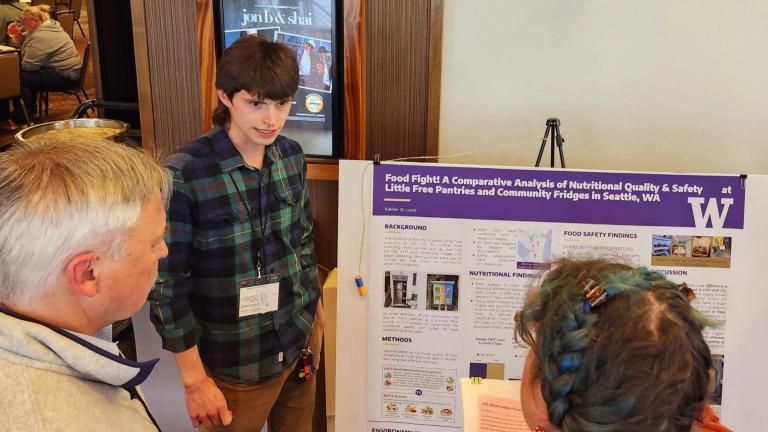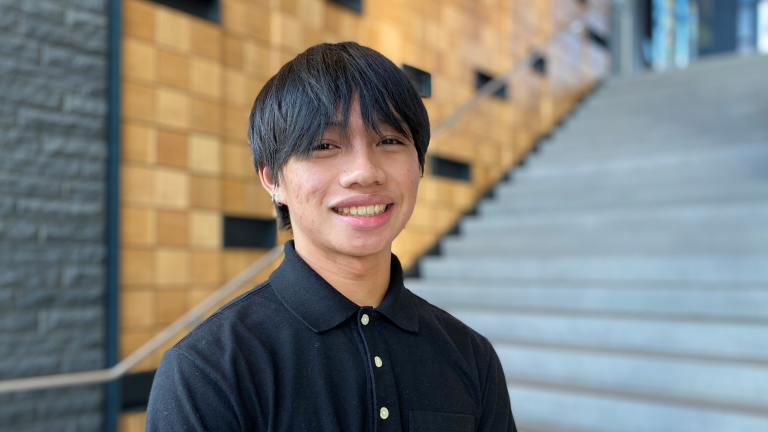Anisa Ghadrshenas
Anisa Ghadrshenas

BS, Environmental Health (EH)
Please tell us about your career path so far, starting with your first job after graduation and leading to where you work now.
When I graduated with the UW, I joined the City of Seattle in the Health and Safety unit where I worked for several years first as an intern, but eventually as a Sr. Health and Safety Specialist for city health programs, particularly for Seattle City Light. I worked on monitoring city employee health exposures to various contaminants, such as silica, ozone, mold, asbestos, lead, dust, as well as things like noise. I also developed training materials to protect city workers, the environment and the public from these every-day contaminants, as well as on more bespoke projects, such as looking at health hazards on the hydroelectric dams in Skagit Valley, or the Seattle viaduct construction. After a few years, I became interested in applying my skills internationally and started working with the Clinton Health Access Initiative (CHAI) in Kenya, focused on increasing access to diagnostic services for infectious diseases in emerging markets. I worked with Ministries of Health and government partners to assess health needs of HIV testing programs, and to develop initiatives to scale up access to these programs. This involved fund-raising with donors, negotiations with suppliers and manufacturers of HIV commodities, working with researchers and academics to assess interventions, coordination with implementing partners, development of strong monitoring and evaluation programs, and engagement with health-care professionals and end-users. Over 7 years with CHAI, I oversaw a team of 30+ people working in 15 countries and managed a portfolio of over 150M in grant funding for HIV programs. I recently left Kenya in February 2018 and joined the World Health Organization in Geneva, Switzerland, where I am working on normative policies for HIV and HCV testing and treatment programs that guide health policy and decision making around the world.
How did your degree prepare you for your career?
The program from UW was tremendously helpful - both from the technical knowledge that I gained, but also from the outstanding networks that the UW has with the health community, both locally in Seattle and internationally. The strong mix of quantitative and qualitative coursework at the undergraduate level is one of the most valuable parts of this program. I left the UW with a strong understanding of the conditions that affect human and environmental health, but also, how with the ability to measure and assess these conditions. There are very few programs that provide this level of technical knowledge at the undergraduate level.
Did you go on to a graduate or professional program after leaving UW?
Yes, a Master of Science in Major Programme Management from Oxford University, in the UK
What do you like best about your current position?
I really enjoy the process of policy making for health programs that I get to work on at the World Health Organization. Having a strong understanding of how different conditions affects populations and the environment, I appreciate the process of gathering research, bringing together experts, considering all the benefits and harms of different health interventions, and arriving at decisions from a public health perspective on how to tackle some of the world's greatest health challenges.
Any advice for current students who are considering Environmental and Occupational Health Sciences?
Do not be discouraged by the number of quantitative courses - it will pay off in the future when you are able to work on problems that most people learn how to solve in graduate school. Definitely take advantage of the great professors who are involved with some very interesting research at the UW - my experience with the undergraduate research elective is what ultimately got me keen to work with laboratories and testing programs in my workplace.


